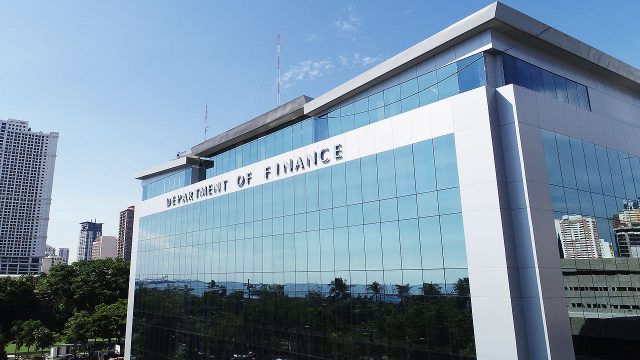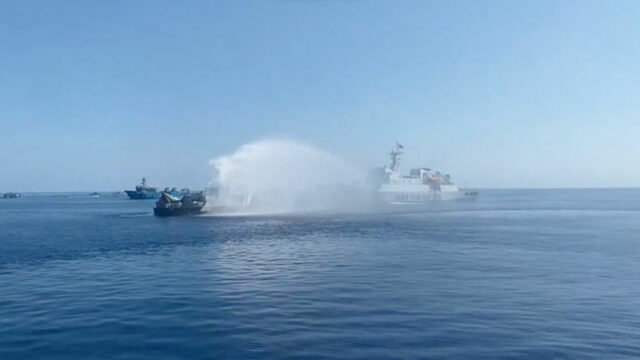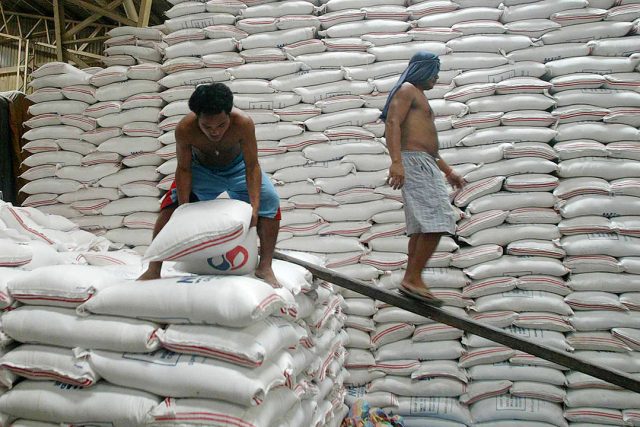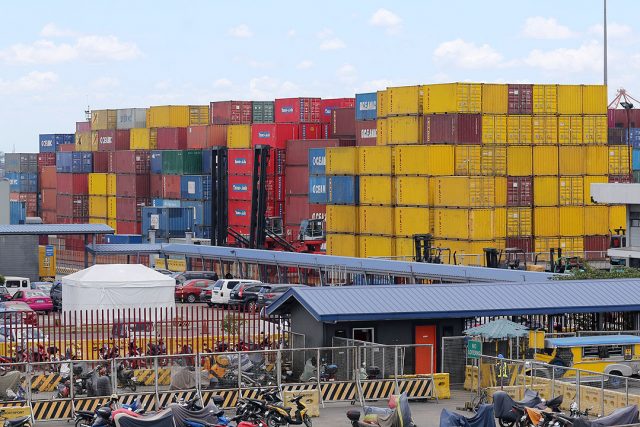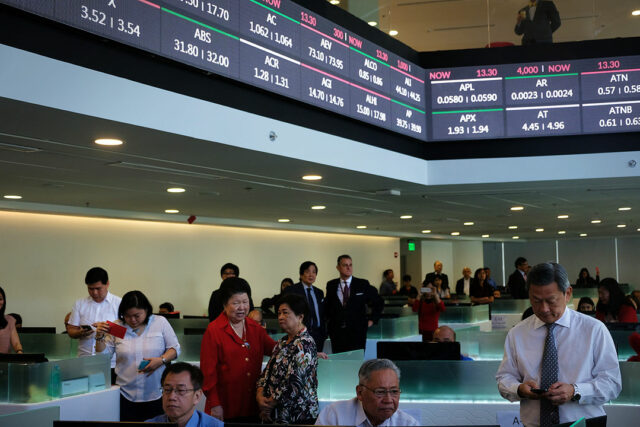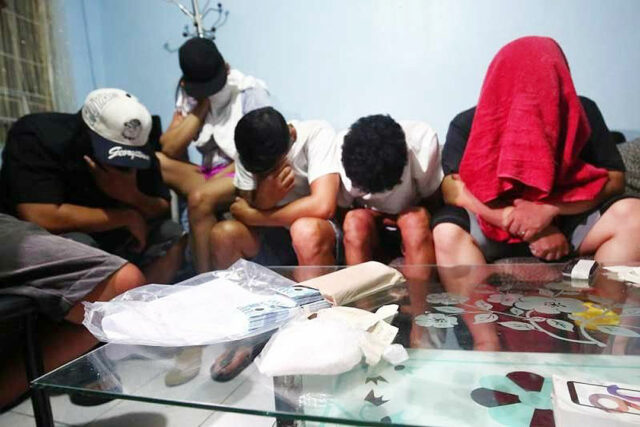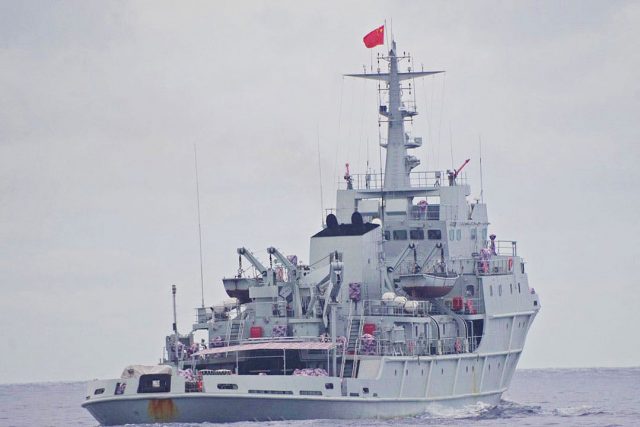By Kyle Aristophere T. Atienza, Reporter
THE POLITICAL parties of President Ferdinand R. Marcos, Jr. and his cousin Speaker Ferdinand Martin G. Romualdez on Wednesday forged an alliance for the 2025 midterm elections, with the aim of fielding a full Senate slate with the help of other political blocs.
The Partido Federal ng Pilipinas (PFP) of Mr. Marcos and Mr. Romualdez’s Lakas-CMD, previously led by Vice President Sara Duterte-Carpio, launched the partnership on Wednesday against the backdrop of resignation calls from allies of the former administration.
PFP is composed of nearly half of Philippine governors, while Lakas-CMD comprises one-third of House members.
The Philippines is now a few months away from the filing of candidacies for the 2025 midterm polls, and trust ratings for Mr. Marcos have been declining recently.
“We cannot do those policy changes without the support of the legislature. Legislative support for any policy is absolutely necessary,” the President said in his speech, citing “transformative politics” as his leadership’s battlecry.
Mr. Romualdez, for his part, described the coalition named Alliance for a New Philippines (Alyansa para sa Bagong Pilipinas) as “the most powerful political force in our country today.”
The performance rating for Mr. Marcos fell to 55% in March from 68% in December, while that of the vice president declined to 67% from 74%, based on the latest Pulse Asia Research Inc. survey.
Among politicians present at the alliance event was former president Gloria M. Arroyo, who in the same month last year dispelled rumors that she was behind a plot to unseat Mr. Romualdez as Speaker.
Ms. Arroyo, president emeritus of Lakas-CMD, was a key backer of the political alliance between Mr. Marcos and Ms. Duterte-Carpio during the 2022 campaign.
Mr. Romualdez told reporters that his party is still open to forging an alliance with Ms. Duterte-Carpio’s regional party Hugpong ng Pagbabago, which was part of the so-called UniTeam alliance in 2022.
“Mr. Romualdez’s openness to involve Hugpong in the alliance is more of a political courtesy rather than an actual offer of coalition, especially that Mr. Duterte has been vocal in his criticisms of the current president,” Jan Robert R. Go, a political science professor at the University of the Philippines, said in a Facebook Messenger chat. “What is glaring here is the absence of the Dutertes in the initial planning stages.”
At the PFP’s event last week, Mr. Marcos said his party was seeking to include the Nacionalista Party (NP), Nationalist People’s Coalition (NPC), and National Unity Party (NUP) in the coalition.
“For the coalition with NP, NPC, NUP, it is more of pragmatic and transactional politics,” said Arjan P. Aguirre, a political science professor at the Ateneo de Manila University.
“With Lakas, it is more of consolidation of power by a dynastic ruling coalition.”
DUTERTE CALLS FOR MARCOS RESIGNATION
Tensions between Mr. Marcos and his predecessor Rodrigo R. Duterte continue to escalate, with the latter’s camp calling for the President’s resignation in a political rally in the central Philippine city of Dumaguete on Tuesday night.
Mr. Marcos has veered away, if not totally reversed, some of Mr. Duterte’s key policies, vowing to shift the anti-drugs campaign to rehabilitation from a deadly approach and standing up to China amid its intrusions into Philippine waters.
Anthony Lawrence Borja, who teaches political science at De La Salle University, said the event could be a preparation for a “grand display” aimed at silencing an opposition movement led by Mr. Duterte, “who is now forced to either join the grand coalition and be a part of the Unity narrative, or stay in the opposition.”
“I think that Duterte’s camp is banking on both the Duterte appeal and the assumption that the Unity narrative will not have the same resonance given the social and economic difficulties hounding Marcos’ administration,” he said in a Facebook Messenger.
INFLATION KEY POLITICAL ISSUE
As in the previous administration, inflation is also the top concern of most Filipinos under Mr. Marcos based on opinion polls.
Philippine inflation accelerated for a third straight month in April — to 3.8% from 3.7% in March — as rice prices continued to surge, according to the Philippine Statistics Authority.
It was mostly driven by rising prices of food and non-alcoholic beverages — 6% in April from 5.6% in March. Rice inflation, which accounts for a huge chunk of the figure, decelerated to 23.9% in April from 24.4% in March.
Rice inflation hit 24.4% in March, the strongest reading since the 24.6% posted in February 2009.
“From the perspective of projections and shared ideas, these political movements are taking the promise of Unity beyond the UniTeam – beyond the Marcos-Duterte alliance,” Mr. Borja said.
“From the perspective of power relations, it is morphing into a grand consolidation at both the national and local levels, and a projection of ‘power by numbers’ back to voters who are bound to go to the ballot around this time next year.”
The International Criminal Court (ICC) has been investigating Mr. Duterte’s deadly drug war, which is also being linked to his daughter, Ms. Duterte.
A Social Weather Stations survey conducted on Dec. 8 to 11 last year showed 53% of Filipinos agreed with the ICC probe of the drug war, up from 45% in March 2023.
The ICC probe covers crimes committed in Davao City from November 2011 to June 2016 when he was still its mayor, as well as cases during his presidency up until March 16, 2019, the day before the Philippines withdrew from the ICC.
Mr. Marcos had said the Philippines under his leadership will not cooperate with the international court, but the Department of Justice revealed on Wednesday it was drafting a briefer of scenarios and options for the President, which includes Manila’s re-entry into the ICC.


